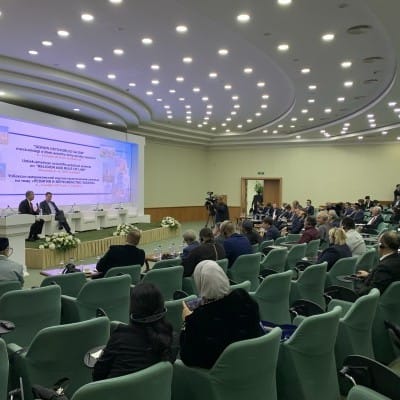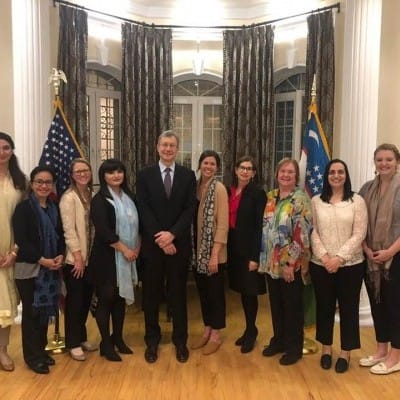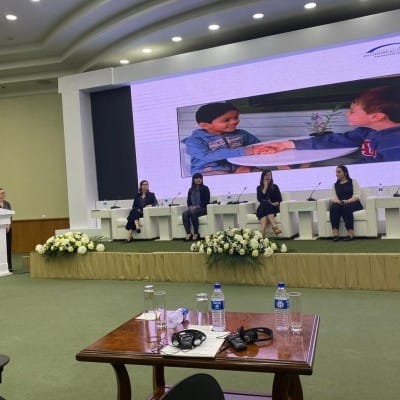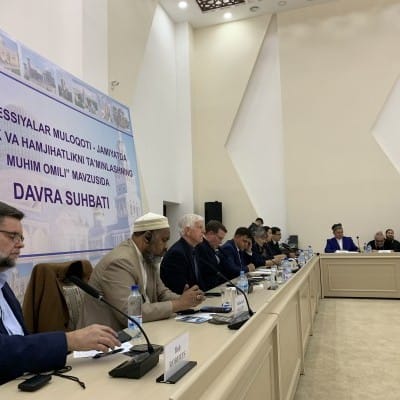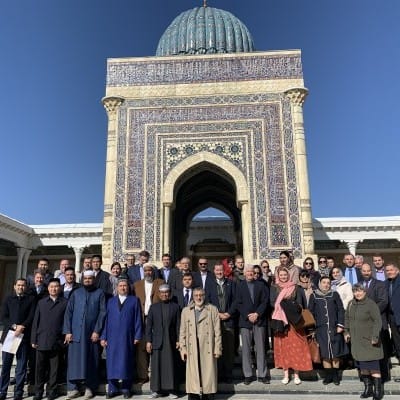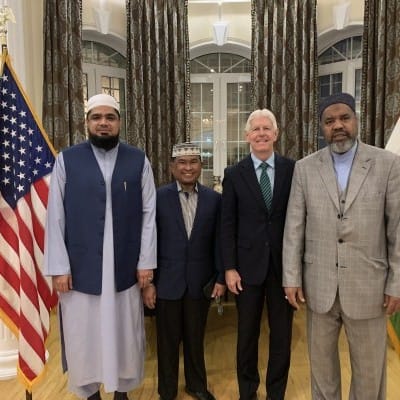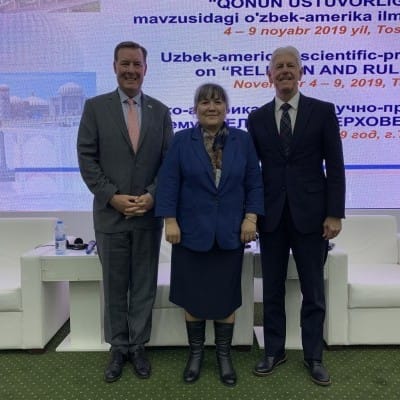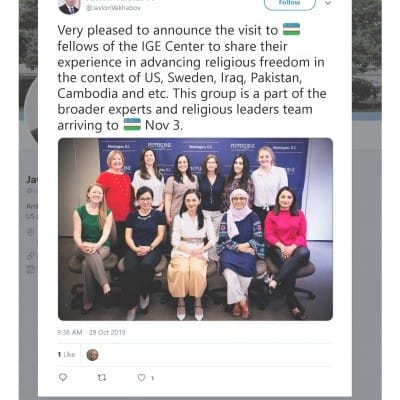IGE Launches Groundbreaking Religious Freedom Initiatives in Uzbekistan
From November 4-9, 2019, the Institute for Global Engagement (IGE) partnered with the government of Uzbekistan to launch several exciting new initiatives to advance religious freedom. These projects mark the first tangible fruit of the Memorandum of Understanding that IGE signed with the Uzbekistan government in September 2018 as well as the first steps in implementing Uzbekistan’s Religious Freedom Roadmap.
IGE brought a delegation of over 40 people consisting of faith leaders, legal scholars, and NGO representatives to Tashkent. The program benefitted greatly from the invaluable support and assistance of Ambassador Javlon Vakhabov and the staff of the Embassy of Uzbekistan in Washington, DC, and the Institute of Strategic and Regional Studies under the President of the Republic of Uzbekistan (ISRS) in Tashkent. There were five major initiatives launched during this program:
1) Religion & Rule of Law Training Program
The Religion & Rule of Law (RROL) training program convened Uzbek government officials, religious leaders, and academics to examine religious freedom and rule of law from a global comparative perspective. IGE and Brigham Young University Law School’s International Center for Law & Religion Studies brought leading scholars from the U.S., United Kingdom, Ukraine, and Kazakhstan to facilitate the sessions. There were 46 participants including officials from Uzbekistan’s Committee on Religious Affairs, Department of the General Prosecutor, Ministry of Foreign Affairs, academics from Tashkent Islamic Institute and International Islamic University, and representatives from Uzbekistan’s Muslim, Russian Orthodox, Catholic, and Protestant communities. The U.S. Ambassador to Uzbekistan Dan Rosenblum also gave an address to training program participants and hosted an evening reception for the IGE delegation and Uzbekistan officials in his residence.
The RROL training program is modeled after similar programs that IGE has deployed in Vietnam, Myanmar, China, and Laos, reaching over 5,000 government officials, religious leaders, and academics. It is the only program of its kind bringing government officials and religious leaders into the same space with an equal voice, building mutual understanding and respect.
2) Council of Experts Meeting on Uzbekistan’s Draft Religion Law
IGE was invited by the Uzbekistan’s National Security Council to convene international scholars to provide candid feedback on the country’s draft religion law. This law will directly affect the degree to which religious communities will be able to gather, practice their faith, and participate in the public sector. IGE’s delegation of scholars provided analysis of the law according to international standards on areas such as registration, education of children, leadership of faith groups, and religious literature. Representatives from Uzbekistan’s Ministry of Justice, Committee on Religious Affairs, and Ministry of Foreign Affairs participated in the discussion. The National Security Council also invited IGE to return to brief parliament members and hold additional trainings for legal scholars and judges.
3) Center for Women, Faith, & Leadership Symposium
IGE’s Center for Women, Faith, & Leadership (CWFL) seeks to help women of faith to advance in their leadership in order to wield greater influence in the fields of international affairs, peace building, and religious freedom. CWFL’s flagship program is a one-year Fellowship that brings together women of faith leaders from different countries, religions, and sectors. The current CWFL Fellows cohort held a week-long training workshop in Uzbekistan and a symposium on how women of faith contribute to the common good during the RROL training program. For more information on CWFL’s program in Uzbekistan, see here.
4) Glocalnet Abrahamic Faith Gathering
Glocalnet is a NGO originating from Northwood Church in Dallas, TX, that seeks to build deep friendships between Christian pastors, Muslim imams, and Jewish rabbis and their congregations in order that they may stand up for each other’s freedom of faith whenever they come under attack. For this program, pastors, imams, and rabbis from three different cities came together along with their counterparts in Uzbekistan. For most of Glocalnet’s participants, this represented the first time they had ever engaged leaders from other faiths. Notable among Uzbekistan participants were evangelical pastors from Nukus whose churches are not officially registered. This was the first time they were able to attend an international forum and also build friendships with imams in their region.
5) Religious Freedom Roundtable
The IGE delegation took a one-day trip to Samarkand where they visited key sites with deep religious and historical significance for Muslims such as the Al Bukhari Memorial. Moreover, a religious freedom roundtable was held for the first time and convened Samarkand’s government officials and religious leaders from the Muslim, Christian, and Jewish communities. The roundtable was modeled after the International Religious Freedom Roundtable in Washington, DC, which IGE co-founded and serves as a multi-faith platform for NGOs to share knowledge and coordinate efforts to advance religious freedom worldwide.
Encouraging Progress
For many years, Uzbekistan was designated by the U.S. State Department as a “Country of Particular Concern” (CPC) for its religious freedom record. This designation is reserved for countries in which persecution of religious believers is especially systematic, egregious, and ongoing. However, since the current president of Uzbekistan Shavkat Mirziyoyev came into power in 2016, the government has undergone extraordinary political and economic reforms. After IGE and the Uzbekistan government signed their MOU in September 2018, raids of Christian gatherings stopped and a number of evangelical churches in Tashkent received official registration. In recognition of Uzbekistan’s progress on religious freedom, the State Department removed Uzbekistan from the CPC list.
These initiatives represent an unprecedented and promising model of partnership between government, religious groups, and NGOs to engage in practical efforts to build religious freedom. IGE has exciting plans for further projects in Uzbekistan in 2020. To be the first the receive latest updates on IGE’s Uzbekistan program, sign up here.
These initiatives were made possible with the generous support of the Templeton Religion Trust and ISRS.
